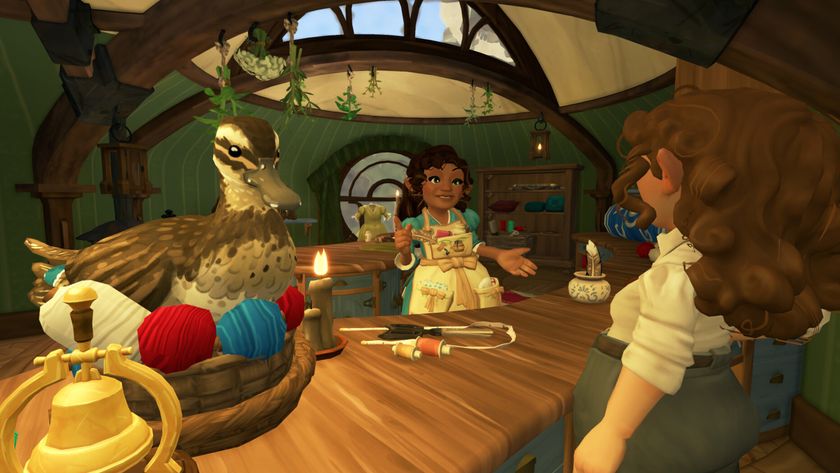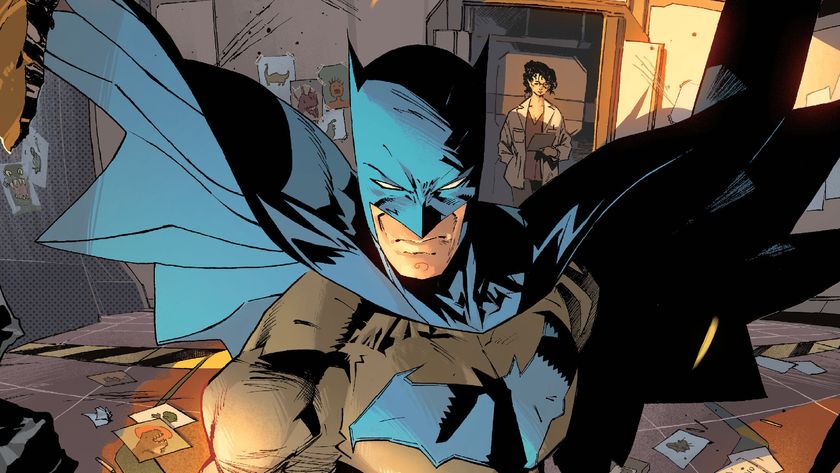
Among the lights, noise, and stampedes of E3 2017, Microsoft made a small announcement: Xbox Avatars are getting revamped, bringing a new look and a new suite of customization options to Xbox One players this fall. Avatars would soon be more complex, with a wider variety of facial expressions, body types, accessories (including wheelchairs and prosthetics), genderless clothing, and even the ability to appear pregnant.
It was easy to overlook in a sea of 4K, 60fps, picturesque games with flawless marketing and hype machines pumping the showfloor full of free swag and… I dunno, Red Bull? Mountain Dew? Point is, it was widely regarded as merely a "huh, neat" moment for many. But to me, it meant a whole lot more. Because to me, it meant I might have a chance to feel a way I hadn't in a long time: proud of my feminine side.
When I was 18, I decided I wanted to pursue living as a transgender woman. Truth be told I'd already been contemplating it for a few years, but after living on my own and speaking with a therapist, the idea seemed more tangible than ever before. And so that's what I did. I changed my name to Sophie Prell, bought new clothes, let my hair grow out, learned how to act in a way that was considered feminine, and a lot more. It was a process, to put things lightly.
Seven years later, I decided that was not a road I wanted to follow anymore. I resigned myself to manhood and masculinity, and have found a new sense of pride in that identity. I'm stronger and beefier than I've ever been, and I even grew a goatee in recent times. But I still occasionally feel that tug of femininity, that yearning to be seen as a pretty, quirky girl.
I know, given my age and stature, that I would not be comfortable expressing this side of myself in the real world - but here Microsoft was, encouraging me to express myself via its Avatars, and the revamp means there will be more ways than ever before to do so. When I heard the announcement I imagined giving my Avatar long lashes and a pixie haircut with a flash of bright color, or giving it a slightly more feminine silhouette.
Representation by the numbers
Having your identity validated can be a powerful thing; it boosts self-esteem and overall mental and physical health. Studies suggest representation in media can even spread a sense of normalcy beyond our own experiences. Less than 100 years ago, it was illegal to even mention homosexuality in the theater. Less than 30 years ago, a moral panic was incited over the first on-air kiss between a same-sex couple.
But today the United States (and many other countries) legally recognize same-sex marriage and support for the LGBT community is at an all-time high. Meanwhile, suicide and death among the community have shrunk, especially among those who feel accepted by their peers and family and recognized by their government. The same goes for women, people of color, people of differing religions, people of differing nationalities, etc.
Sign up to the 12DOVE Newsletter
Weekly digests, tales from the communities you love, and more

Full list of Xbox One backwards compatible games
Unfortunately, diverse representation is not something that, historically speaking, games have excelled at. It would be an insane and impossible task to get a complete breakdown of all video game protagonists to have ever graced our screens, but let's look at the top ten-selling games in the US of the past five years (all data gathered from NPD reports, meaning mobile and free-to-play games aren't accounted for):
2016: Six of the top ten games starred one or more white male protagonists, while three featured a black male protagonist, and two featured a female protagonist - one white, one middle eastern. Note that there is some overlap here (Battlefield 1 features mostly white males, but also a female of middle eastern ethnicity and black males as well), and I'm not counting games which let players create their own character. It’s also worth noting that titles like Madden and NBA 2K - yearly regulars in the top ten - don’t have a protagonist at all.
2015: Three of the top ten games starred one or more white male heroes, one featured a black male hero, and one starred a white female player character.
2014: Four of the top ten games starred at least one white male protagonist. GTA 5, one of those four games, also featured a black male protagonist. No female protagonists save for those in games with character customization options.
2013: Four of the top ten games starred a white male protagonist. GTA 5 was the only to feature a black male in a starring role. No female leads.
2012: Five of the top ten games starred white males. One game featured white female heroes. One game featured a half-white, half-native american male as the lead.
The numbers suggest that white males are the best-represented sex and skin color in games. You might think it's because white males are the biggest demographic for games, but data indicates a more complex reality.
A 2015 Pew survey found that blacks and hispanics actually slightly outnumber whites percentage-wise (53% and 51% compared to 48%, respectively) when measured by "percentage of all adults who play video games on a computer, TV, game console, or portable device like a cellphone." The same study also found that the gender gap is not a particularly wide one, with 50% of men saying they play games, compared to 48% of women.
Be yourself, see yourself
Of course, you could break this down further and further, examining which genres do men play vs the genres women play, which franchises are most popular by ethnicity, etc. But I don't bring this up so we can suss out who's playing what - only who's playing, period.
Women play games. Non-whites play games. Yet these demographics aren't being represented in-game proportionate to the percentage of players who fit those parameters. And if you're disabled or genderqueer, forget about it - virtually no games feature characters like you.
Groups can (and will) debate until they're blue in the face about whether or not this is right or fair, but the fact remains that going strictly by the numbers, there's an imbalance here. And that's why the new Xbox Avatars make me so happy.
The new Avatars seem poised to add dozens, if not hundreds, if not thousands of ways to represent yourself in the digital world. Wheelchairs. Prosthetics for lost limbs. A rainbow of colors to put in your hair. Clothing no longer restricted by gender. A wider variety of body types and skin colors. This isn't going to dramatically tip the scales in favor of women, POC, and the LGBT+ community being represented in games, but it's one more option - and every little bit matters.
It matters to me that, while I'll probably never be seen as feminine or even androgynous / non-conforming in the real world again, I can still have that piece of my identity displayed like a badge of pride in a medium that is dear to me. It matters to someone who has persevered through the loss of a limb that they can show that they're still strong. It matters to those in wheelchairs that they can show they're still a gamer. It matters to women, people of color, and everyone who didn’t fully fit the mold until now.
And the best part? It has absolutely zero impact on the people who have been rolling their eyes throughout this piece or skipped ahead to the comments section to argue.
Despite the recent (and largely imagined) idea of pressure to make sure every video game has X amount of women, X amount of people of color, X amount of LGBT+ representation, there is no conflict between wanting those things and enjoying games as they are.
I didn't get sour-faced at Uncharted 4 because Nate didn't decide to fly off into the sunset nestled safe in the arms of a bisexual hispanic stud muffin (although hey, what a plot twist, right?), but I still smiled at seeing his daughter take her first steps into the world of professional adventuring, acknowledging how cool it was to have a young woman take the spotlight - even for a little while.
Me having my thing doesn't mean you can't have yours. And when the Avatar update rolls out and lets me represent myself in a way that feels true to me, I'll be very, very glad to have it.
Sam is a former News Editor here at GamesRadar. His expert words have appeared on many of the web's well-known gaming sites, including Joystiq, Penny Arcade, Destructoid, and G4 Media, among others. Sam has a serious soft spot for MOBAs, MMOs, and emo music. Forever a farm boy, forever a '90s kid.

Former Witcher 3 lead says his new vampire RPG Blood of Dawnwalker has a smaller open world because "it feels more like you actually know the place" compared to "behemoths"

Lord of the Rings life sim Tales of the Shire delayed again, now coming in July: "Every detail will be just right"
Most Popular






